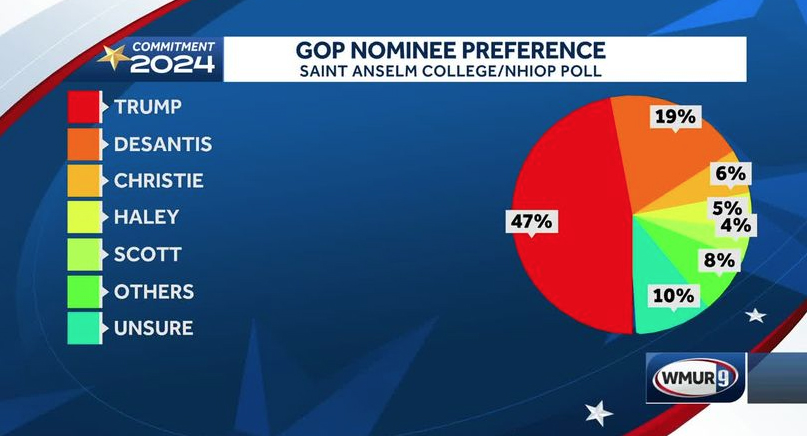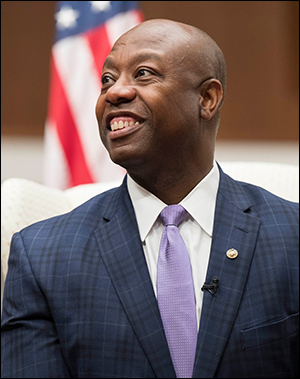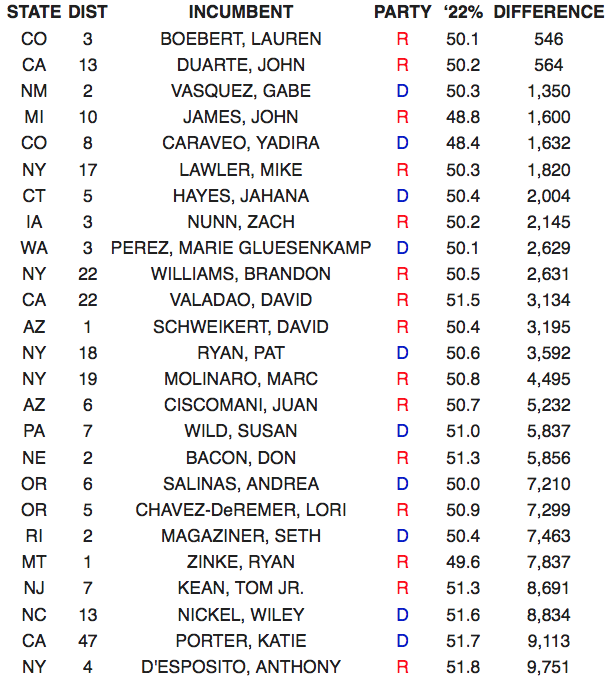By Jim Ellis — Tuesday, July 25, 2023
Senate
Michigan: Slotkin Posts Larger Lead — Mitchell Research conducted a new poll of the Michigan electorate (July 11-13; 639 likely Michigan voters; SMS text) and finds Rep. Elissa Slotkin (D-Lansing) recording a 44-38 percent lead over former Rep. Mike Rogers (R) and an even larger 41-28 percent advantage over ex-US Rep. Peter Meijer (R). Both are potential Senate candidates. The accuracy level of this poll could be questioned, however. The sample number of 639 is low for a purely electronic poll, and the all-text questionnaire did not accept any respondent who failed to answer all of the survey’s 22 questions.House
Alabama: New House Redistricting Map Passes Legislature — On Friday, the Alabama legislature passed a new congressional map as directed, but the controversy appears far from over. The US Supreme Court decision that there could be another minority seat drawn on the Alabama map was addressed in the special session that Gov. Kay Ivey (R) called to comply with the SCOTUS ruling.
Assuming the governor signs the new legislation creating the map, the Democratic plaintiffs have already said they will object to the new plan. The initial challenge to this new map will return to the three judge panel who originally declared the Alabama map unconstitutional.
It will be up to the three Republican judges to determine if this plan meets the guidelines that the SCOTUS ruling outlined. We can expect detailed and possibly contentious arguments to occur when attorneys from both sides again appear before the judicial panel. The Alabama primary is being held concurrently with Super Tuesday, March 5, 2024, so expect the new lawsuit to be quickly filed.
RI-1: Matos’ Signatures Challenged — As last week closed, controversy arose in the special election to replace resigned Rhode Island Congressman David Cicilline (D). Lt. Gov. Sabina Matos, who polling suggests has opened a large lead over the field of 21 other Democrats, now may face a challenge over whether her required 750 petition signatures are all from legally registered voters.
Matos’ campaign spokesperson said they will review the signatures to ensure that she has met the legal requirement. If the challenge proves valid and Matos is disqualified, the race becomes wide open. The Democratic primary, the winning of which is tantamount to claiming the seat, is scheduled for Sept. 5.
UT-2: Lawsuit Filed Challenging Maloy’s Legitimacy — One of the special election Republican candidates who lost the Utah Republican Party’s 2nd District endorsing convention and did not file petition signatures to continue his candidacy, has now filed a lawsuit challenging the officially endorsed candidate, Celeste Maloy who is resigning Rep. Chris Stewart’s (R-Farmington) legal counsel.
Two weeks ago, objection to Maloy’s voter registration status arose since she last cast a ballot in Utah during the 2018 election. She moved to the Washington, DC area to work for Rep. Stewart, thus explaining her absence from the state. Lt. Gov. Deidre Henderson (R), who is the state’s chief elections officer, approved her petition, thus allowing her candidacy. Now, however, former candidate Quin Denning (R) is filing an official legal challenge to her status. He is claiming that Maloy reactivated her Utah voter registration at her sister’s house three days after filing her candidacy documents.
Former state Rep. Becky Edwards and ex-Republican National Committee chairman Bruce Hough have qualified via petition for the Sept. 5 special primary election. The Democrats have nominated state Sen. Kathleen Riebe (D-Cottonwood Heights). Rep. Stewart is scheduled to resign on Sept. 15.








